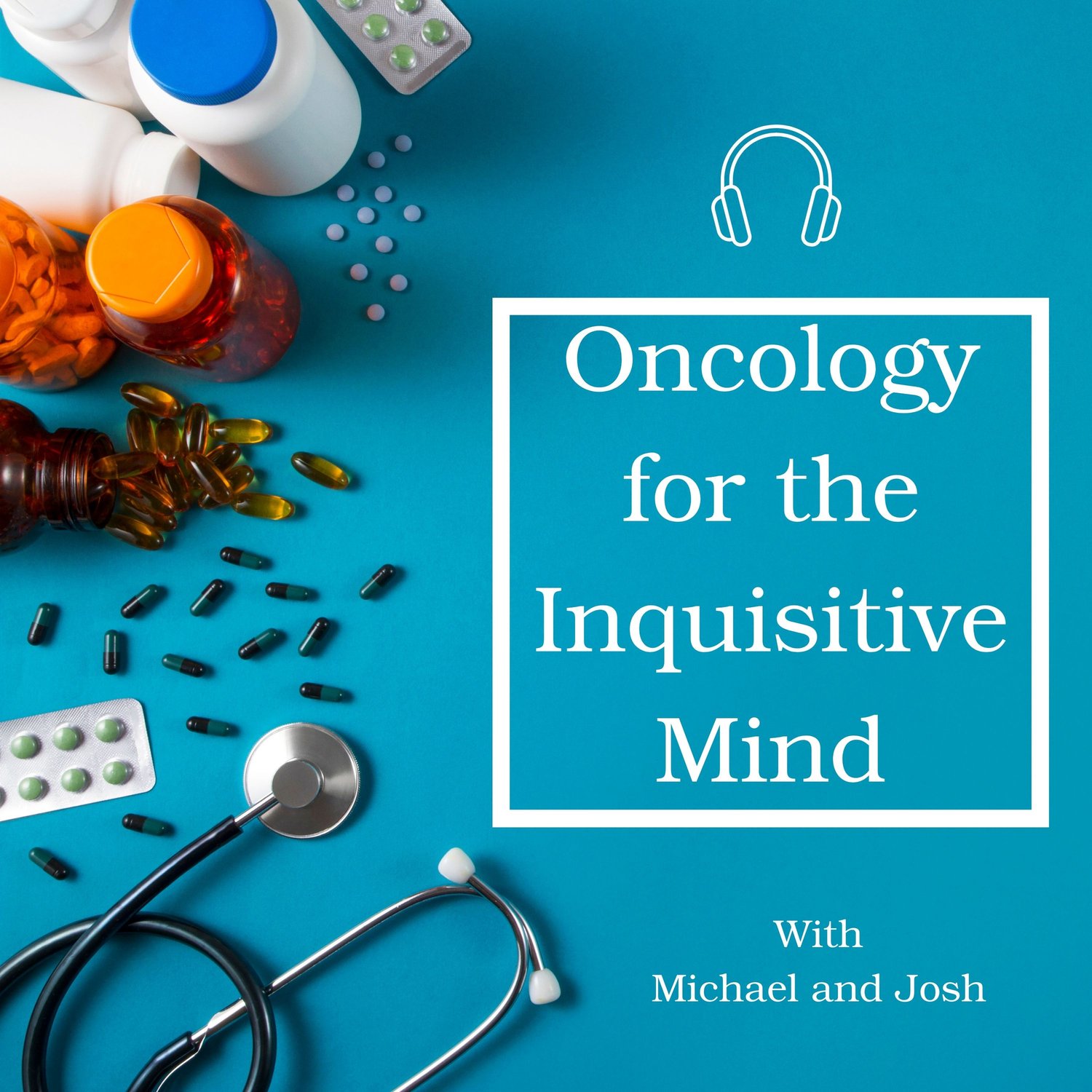
Mission Statement:
Hello, I’m Dr Michael Fernando, and I’m Dr Josh Hurwitz and we are the hosts of the oncology education podcast Oncology for the Inquisitive Mind.
As oncologists who have recently completed their training, the memory of this journey remains fresh. The transition from junior doctor to speciality trainee (or fellow) occurs over 24 hours and is a daunting experience. Between finding one's feet, dealing with a demanding clinical load and engaging in research, there is very little time to establish a solid knowledge foundation.
Compounding these challenges, Michael and I began our training as the COVID-19 pandemic swept the globe. Healthcare demands skyrocketed, uncertainty climbed, and Michael can officially say he lived in one of the most locked-down cities in the World, with 262 days of total confinement. Not to be outdone, I faced my own challenges, separated from loved ones – and Michael – by 545 miles and several quarantine zones for the better part of a year. At this point, our journeys diverged and despite this, the challenges we faced were aligned.
This separation brought to mind the plight of some specialists living in remote areas without access to multi-disciplinary meetings and legions of highly trained specialists. While not a uniquely Australian phenomenon, it is perhaps more obvious to look at places such as Alice Springs, which is over 900 miles from the closest tertiary hospital. For oncologists and trainees working in such places, daily patient care is very different. Attending educational dinners or conferences suddenly becomes more difficult given the demands of work, lack of cover and the distance one would have to travel.
During this time, educational programs fell to the wayside, research opportunities dwindled and workloads skyrocketed. Healthcare professionals narrowed in on what we do best, the main task at hand, which was caring for patients. And yet, oncology as a specialty never rested. Michael, myself and two of our colleagues set up a weekly virtual journal club to discuss pivotal trials and continue to grow our understanding of this ever-evolving and rapidly changing field. This was the seed from which “Oncology for the Inquisitive Mind” would bloom.
Lack of educational resources and structured teaching for trainees and specialists is not unique to Australia. A 2020 study published in the journal E-careers Medicine by Jalan and colleagues reported that trainees from low-, middle- and high-income countries frequently reported a lack of structured teaching, with one respondent stating [quote] “trainees should be provided with a solid foundation upon which to build their skills, rather than being ‘thrown in the swimming pool to then do [their] best to learn how to swim’.” [end-quote] More concerningly, a high proportion of trainees in low-income countries reported needing to self-fund their core oncology training, which raises significant concerns about increasing disparities in service provision amongst the most disadvantaged communities.
Similarly, the 2019 UK Oncology Trainee Survey Report found significant variability in the reported usefulness of local teaching, with 25% of respondents reporting their local education was “not useful,” and 35% of respondents reporting that no local training was required prior to prescribing systemic anti-cancer therapy. This is clearly an area of need, and new education methods and modalities are required to bridge the gap between junior doctors and trainees.
Our solution, was to create an on-demand educational resource that was available wherever you are, with episodes focussed on examining a single topic using a medium that catered to the modern audience. And what medium could be more 21st century than a podcast?
Each episode of Oncology for the Inquisitive Mind examines several practice-informing articles in a single area of medical oncology. We take an in-depth look at each component of a trial asking questions and critiquing as we go. But we know that oncology is ultimately about the patients, not hazard ratios or p-values, so we go beyond the numbers and discuss how the treatment regimen of the week could fit into the daily practice of a medical oncologist.
Beyond the tentpoles of our clinical practice, our “OncoSnacks” episodes examine the practical management of common acute problems, such as treatment-mediated side effects and acute oncological presentations. Twice a year we publish an intensive series on major updates from important congresses including ASCO, ESMO & World Lung.
And finally, we conduct regular interviews with leading voices in medical oncology world, seeking their wisdom borne from years of clinical practice and involvement in high-level research. Our most recent interviews (to be published in early 2024) include former ASCO president Professor Eric Weiner and the Director of Clinical Research at the Dana Farber Institute, Associate Professor Erica Mayer.
